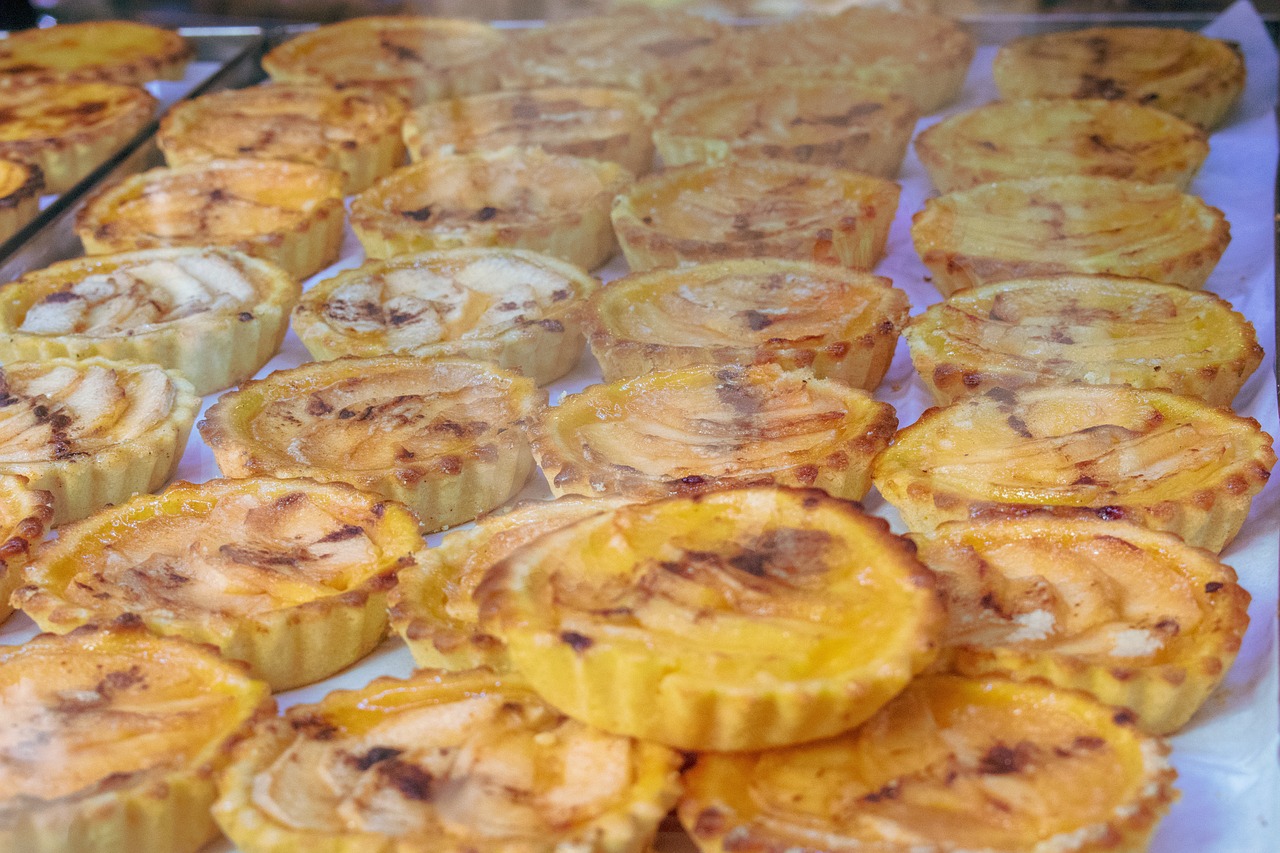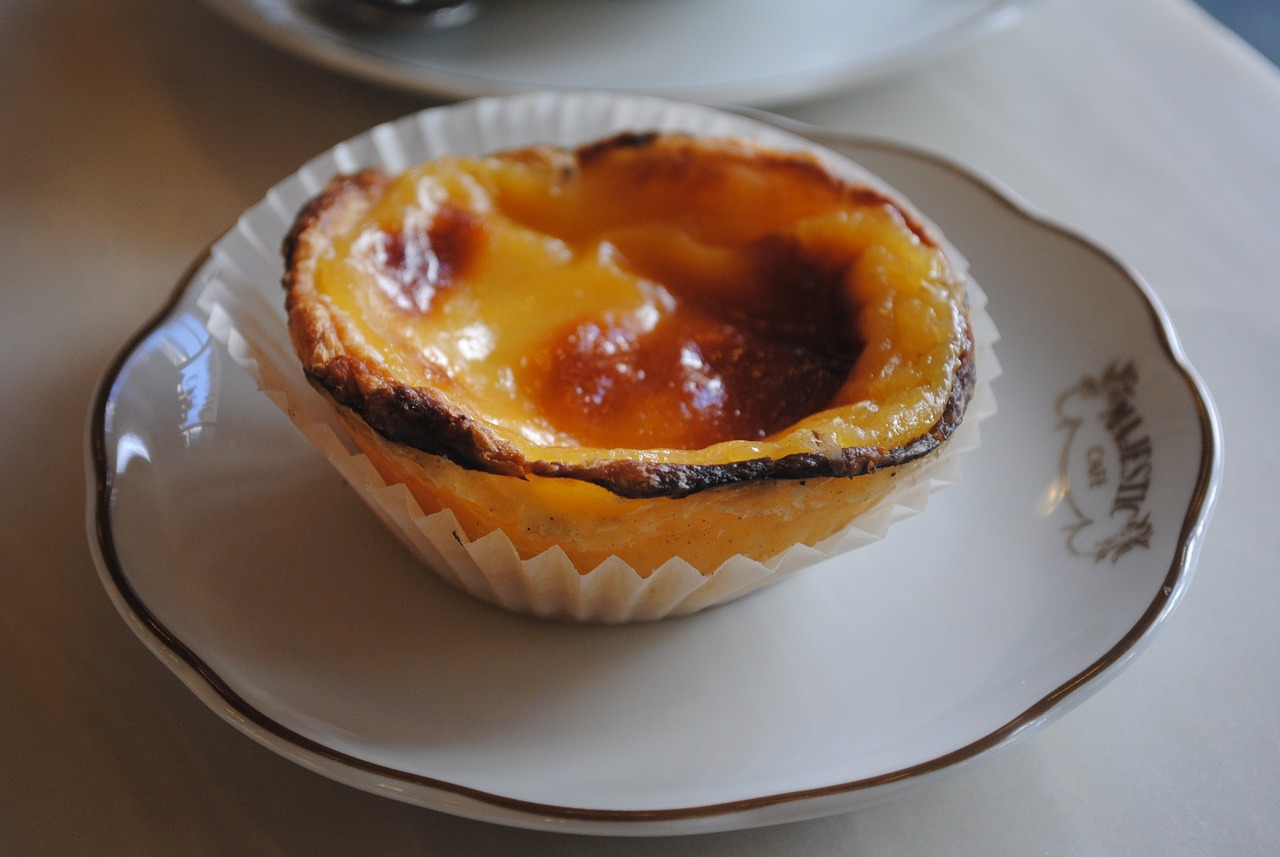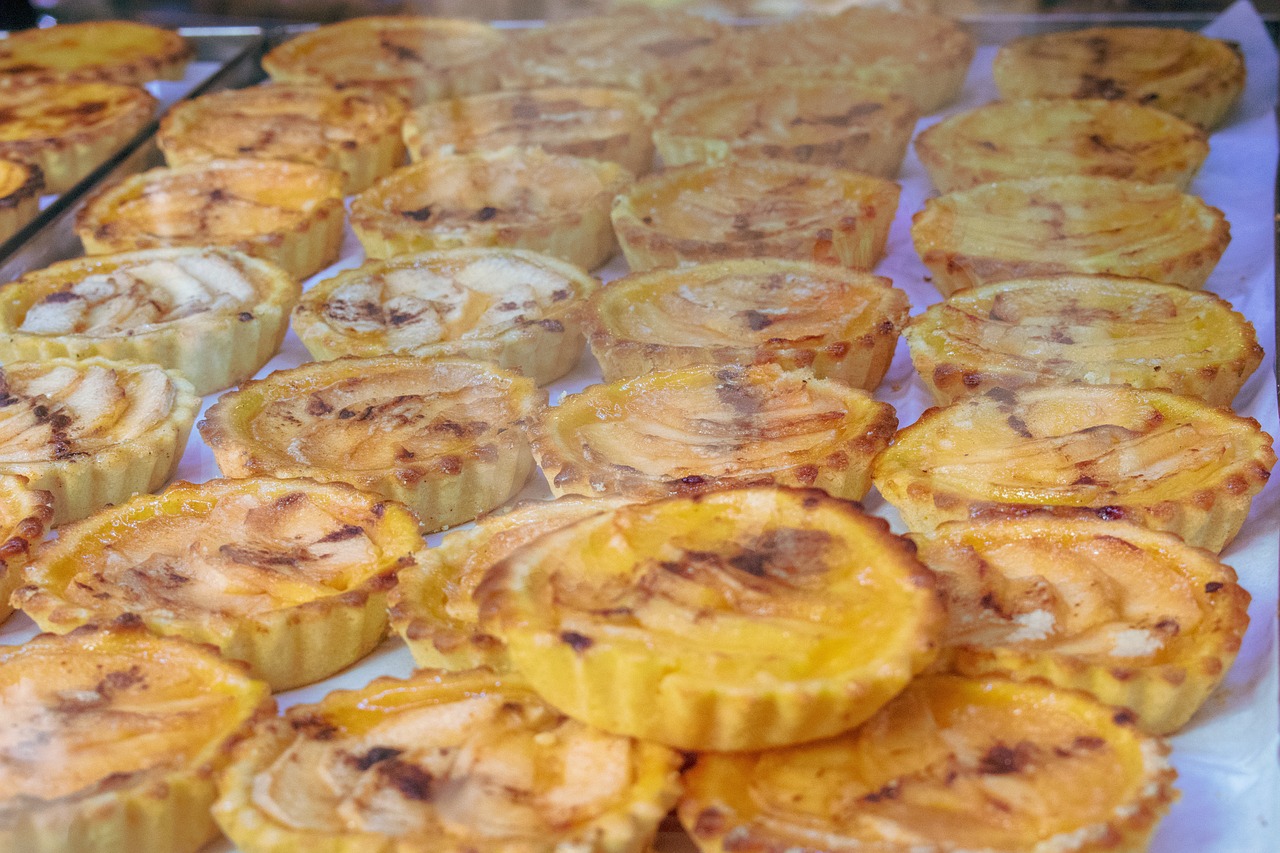Portuguese Pastries: Indulgent Treats for Your Sweet Tooth

Indulge in the delightful world of Portuguese pastries, where every bite is a journey of flavors and textures that will captivate your taste buds. From the iconic custard tarts to the delicate almond cakes, Portuguese pastries are a true delight for anyone with a sweet tooth craving something special.
History of Portuguese Pastries
Portuguese pastries have a fascinating history that dates back centuries, shaped by a blend of cultural influences and culinary traditions. These delectable treats have evolved over time, reflecting Portugal's rich heritage and global connections. The history of Portuguese pastries is a delicious journey through time, highlighting the creativity and craftsmanship of generations of bakers and chefs.
One of the defining aspects of Portuguese pastries is the Moorish influence, which introduced ingredients like almonds, honey, and spices to the region. This influence can be seen in pastries such as the famous Pastéis de Nata, with its flaky crust and creamy custard filling. The fusion of Moorish, Mediterranean, and European flavors has resulted in a unique pastry culture that continues to captivate taste buds around the world.
Portuguese pastries also bear the mark of the Age of Exploration, when Portuguese sailors traveled the globe in search of new trade routes. This period brought exotic ingredients like cinnamon, vanilla, and sugar to Portugal, enriching the local culinary landscape. The trade routes established during this time facilitated the exchange of flavors and techniques, leading to the creation of iconic pastries that are beloved today.
Traditional Portuguese pastries are deeply rooted in the country's religious and cultural celebrations. Many pastries are associated with specific holidays and festivals, such as Easter and Christmas, where families come together to enjoy these sweet delights. Each pastry carries a story of tradition and heritage, passed down through generations and cherished as a symbol of Portuguese identity.
As Portuguese cuisine continues to gain international acclaim, the history of Portuguese pastries serves as a testament to the country's culinary prowess and creativity. From convent sweets created by nuns to modern patisseries pushing the boundaries of flavor and design, the evolution of Portuguese pastries is a testament to the enduring legacy of this sweet tradition.
Popular Portuguese Pastries
When it comes to popular Portuguese pastries, there is a delightful array of sweet treats that are beloved by locals and visitors alike. These pastries are not just desserts; they are a reflection of Portugal's rich culinary heritage and the country's love for indulgent flavors.
One of the most iconic Portuguese pastries is the Pastéis de Nata, also known as custard tarts. These delectable treats consist of a flaky pastry shell filled with a creamy custard center that is caramelized to perfection. The contrast between the crispy exterior and the smooth custard is a true delight for the taste buds.
Another popular pastry is the Bolo de Arroz, a traditional rice cake that is moist, fluffy, and subtly sweet. Made with ingredients like rice flour, sugar, and eggs, this pastry has a unique texture and flavor that sets it apart from other desserts.
Exploring the world of Portuguese pastries will also introduce you to Pão de Deus, a coconut and sugar-topped bun that is both soft and chewy. The combination of coconut and sugar creates a sweet and aromatic experience that is perfect for enjoying with a cup of coffee or tea.
For those with a love for almonds, the Toucinho do Céu is a must-try pastry. This almond cake is rich, dense, and bursting with nutty flavors that are complemented by a hint of citrus. Each bite is a harmonious blend of textures and tastes that will leave you craving more.
When indulging in Portuguese pastries, you will also come across the Travesseiro, a pillow-shaped pastry filled with a sweet almond cream. The flaky pastry layers and creamy filling create a heavenly combination that is both comforting and decadent.
Whether you have a sweet tooth or simply appreciate the artistry of pastry making, exploring the popular Portuguese pastries is a journey worth taking. Each bite tells a story of tradition, innovation, and the passion that goes into creating these delectable treats.
Modern Twist on Traditional Pastries
When it comes to the world of pastries, innovation and creativity are key ingredients that can elevate traditional treats to a whole new level. In the realm of Portuguese pastries, chefs and bakers are constantly pushing the boundaries and reimagining classic recipes to offer exciting twists that surprise and delight the taste buds.
Imagine biting into a Pastel de Nata with a surprising burst of citrus or indulging in a Bolo de Arroz infused with exotic spices. These modern interpretations of traditional Portuguese pastries bring a fresh perspective to age-old favorites, offering a sensory explosion that challenges conventional expectations.
One of the exciting trends in the world of Portuguese pastries is the fusion of flavors from different culinary traditions. Chefs are experimenting with unique combinations, such as pairing traditional pastries with tropical fruits or incorporating savory elements for a bold contrast. This blending of diverse influences creates a harmonious symphony of flavors that captivates the palate.
Moreover, the presentation of modern Portuguese pastries is an art form in itself. Bakeries are not only focusing on taste but also on the visual appeal of their creations. Intricate designs, vibrant colors, and creative garnishes transform these treats into edible works of art that are as pleasing to the eye as they are to the taste buds.
Furthermore, the use of high-quality, locally sourced ingredients is paramount in the evolution of Portuguese pastries. Chefs are emphasizing the importance of fresh, seasonal produce and artisanal products to enhance the flavor profiles of their creations. By prioritizing quality over quantity, these pastry makers are elevating the gastronomic experience for discerning food enthusiasts.
In conclusion, the modern twist on traditional Portuguese pastries is a testament to the culinary ingenuity and passion of chefs and bakers who are dedicated to pushing the boundaries of flavor and creativity. With each bite, these innovative treats offer a delightful surprise that sparks joy and excitement, inviting food lovers to embark on a sensory journey like no other.

 yazar
yazar 





